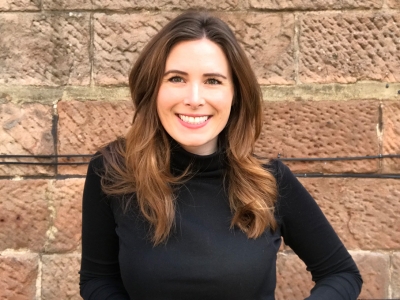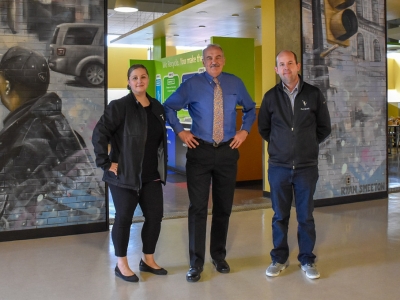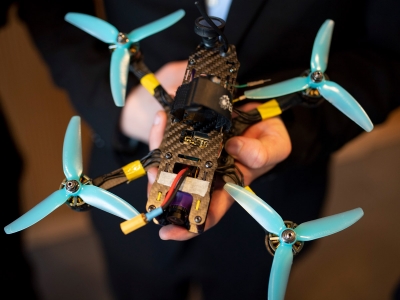By Ellen Tsaprailis
Photos by Josh Hotz
For the second year, the National Research Council (NRC), the Government of Canada’s largest research organization, welcomed 25 undergraduate science students from Carleton University (CU) to its active Ottawa research facility during October’s fall break to expose them to how scientists work.
NRC researchers Sue Twine and Kelly Fulton from the Human Health Therapeutics Research Centre teamed up with Bill Willmore and Martha Mullally from Carleton University to offer students a unique experiential learning program that provides opportunities to meet entrepreneurs, business developers and top scientists in the biotechnology field.
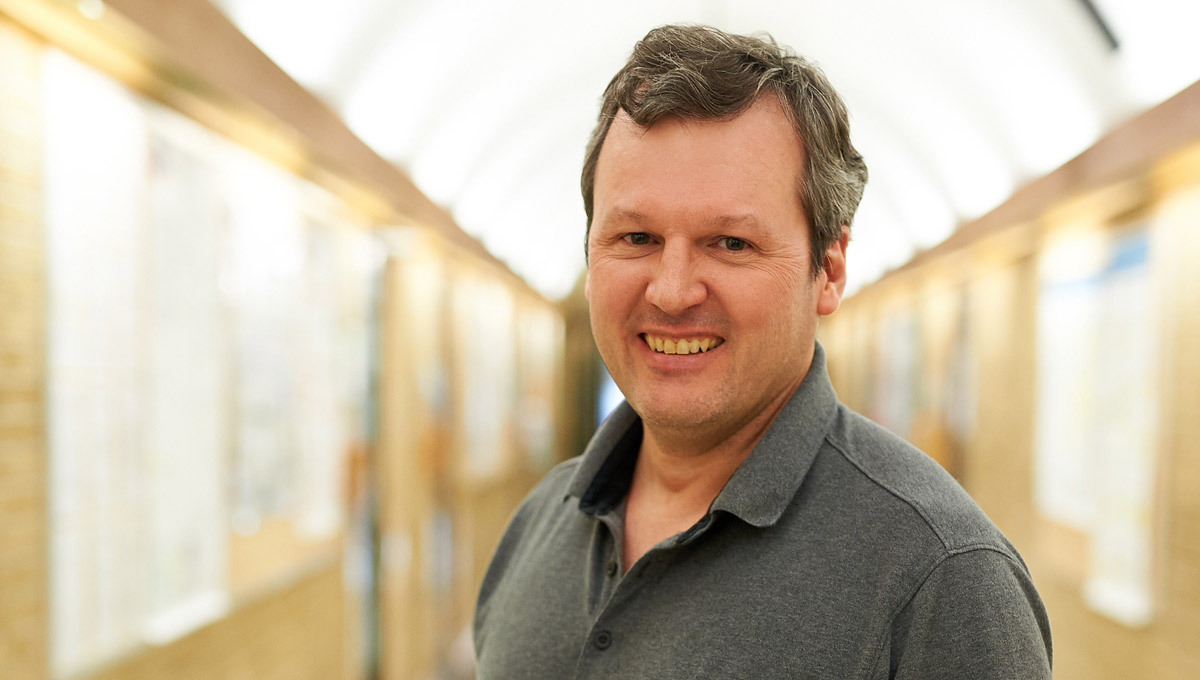
Prof. Bill Willmore
Biochemistry Prof. Bill Willmore says students in biotechnology, biochemistry and biology programs applied for the NRC-CU Biotech Internship and spent the week learning about business development, intellectual property management, entrepreneurship, career management, marketing, bio-manufacturing, drug design and cancer therapeutic development.
Students worked in small teams to launch hypothetical cancer biotech startup companies, choosing company names and assigning themselves roles. They were challenged to devise a new cancer therapy, as well as scientific and business strategies to develop that therapy.
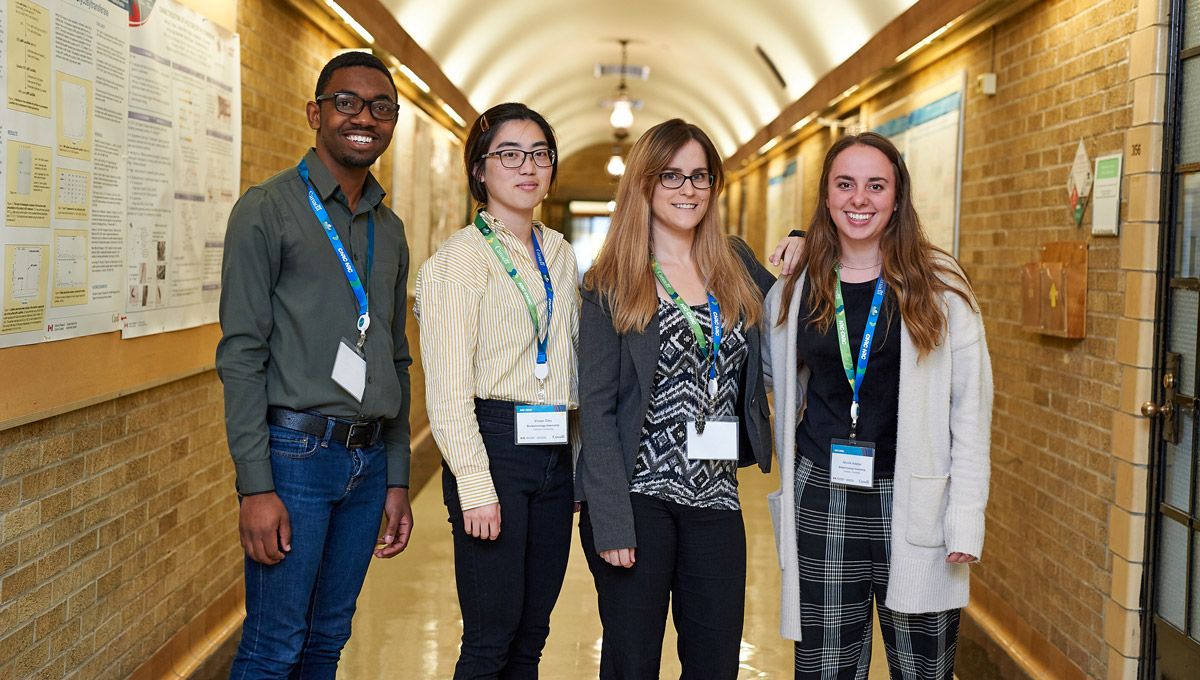
Gaining Real-World Biotech Experience
“The most important element that students gain from participating in the NRC-CU Internship is the experience of working on real-world problems with helpful advice from a panel of experts at the NRC and affiliated companies/institutes,” says Willmore.
“Students have the opportunity to network with leaders and scientists at the NRC in the field of therapeutic development. This is the type of experiential learning that they cannot get in the classroom alone.”
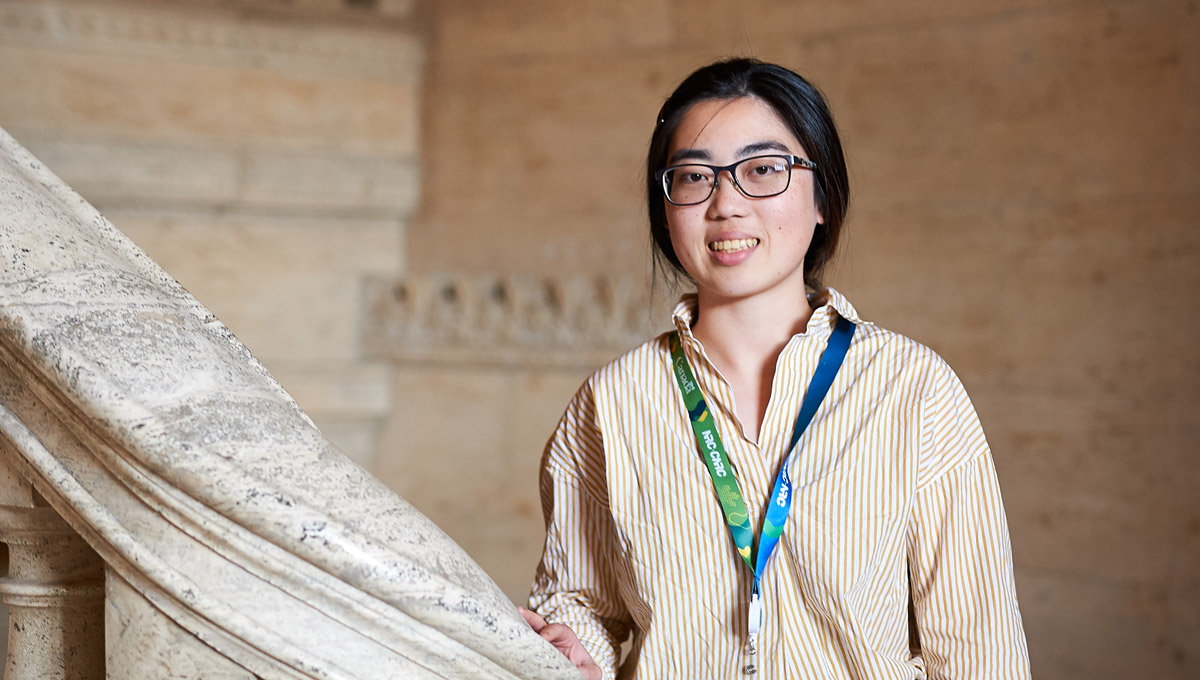
Vivian Chu
Vivian Chu is a second-year biology and biotechnology student. Having previously studied biomedical and electrical engineering, Chu wants to build a career with a heavier focus on biology.
“I wanted to get a better understanding of the application of bioinformatics since I am interested in pursuing graduate studies in this field,” says Chu.
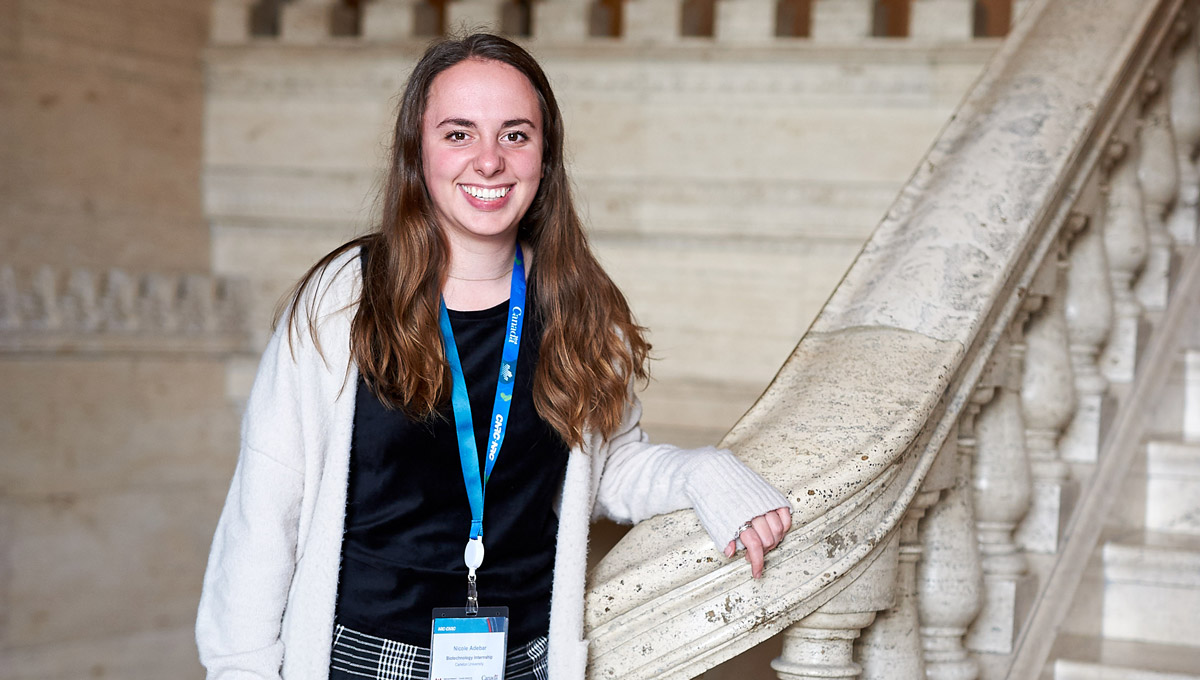
Nicole Adebar
Nicole Adebar is a fourth-year biochemistry student originally from Vancouver.
“I wanted to participate in the internship in order to be able to talk to some of the leading professionals in their field, to find potential novel career options, to meet like-minded people, and to use the knowledge I have gained during my undergraduate studies and apply it in real-world situations,” says Adebar.
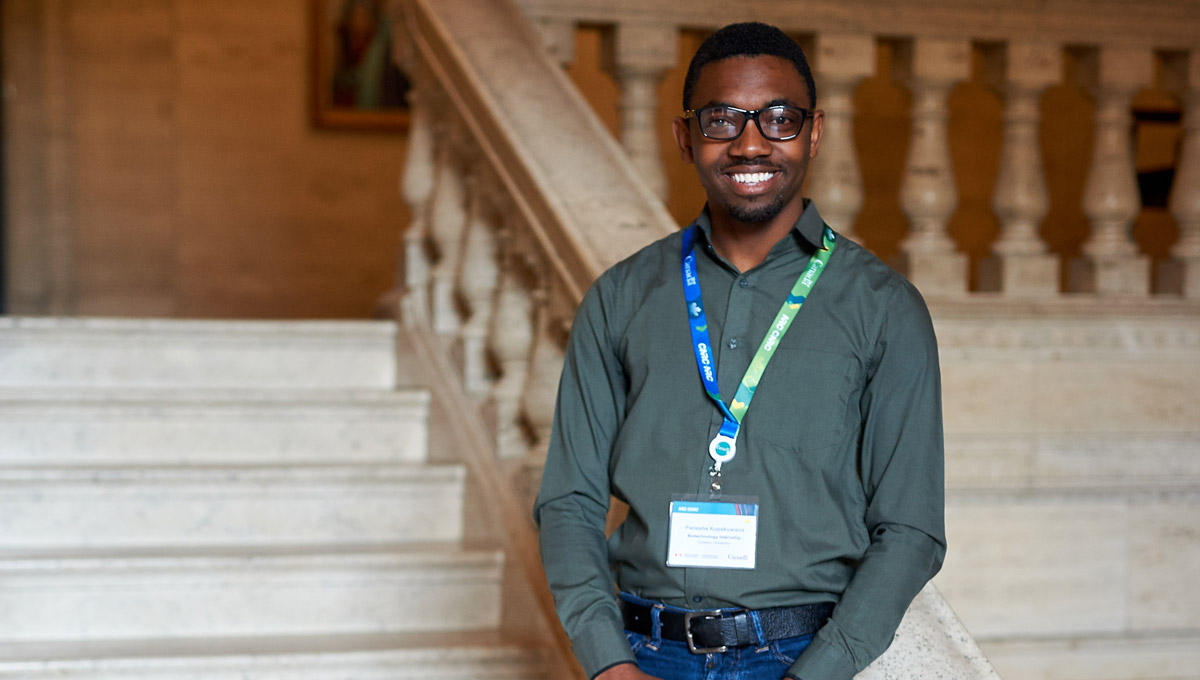
Panashe Kupakuwana poses on a marble staircase in the NRC building.
Panashe Kupakuwana is a second-year honours student majoring in biochemistry and minoring in biology. His interest in applying for the internship was sparked by NRC representatives who came to one of his biotechnology courses to talk about what students could experience.
“The idea of running the internship during reading week made it unattractive at first,” admits Kupakuwana. “However, I feel like it is a worthwhile sacrifice because, as a student, you gain unimaginable career guidance and information about the field of biotechnology.”
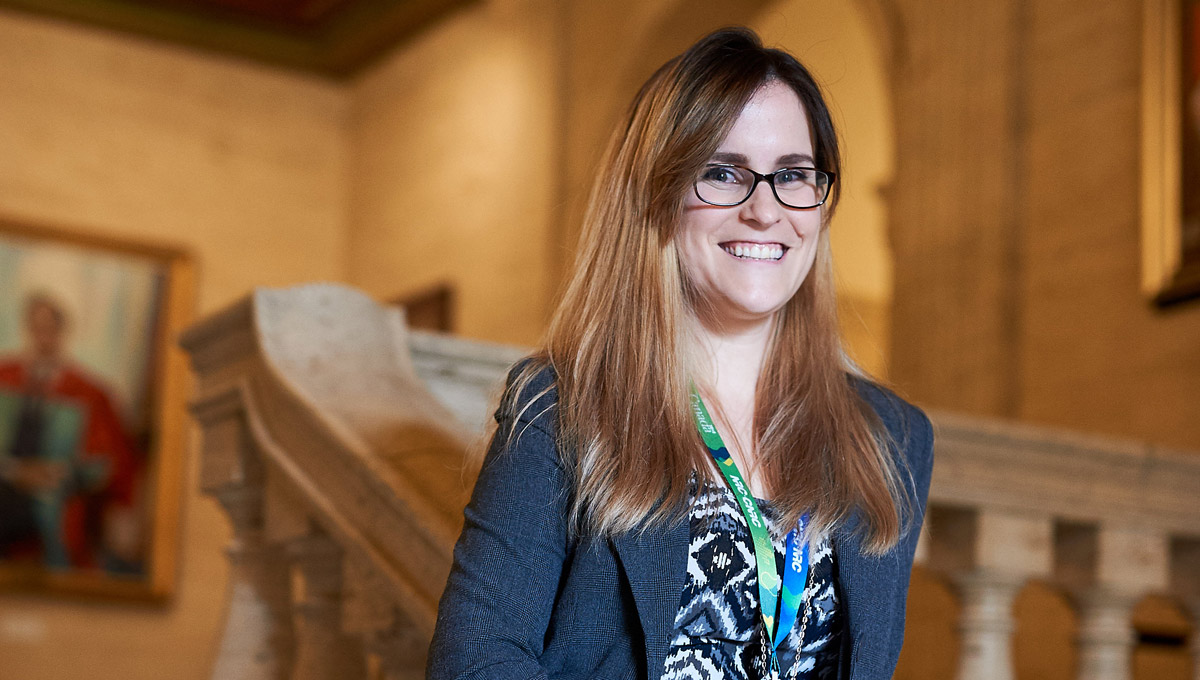
Stephanie Dobbs poses on a marble staircase in the NRC building.
Stephanie Dobbs is in her third year of honours science, majoring in biochemistry.
“I would love to work at the NRC or somewhere similar after graduation, so I jumped at the chance to spend a week there,’’ says Dobbs. “We (were) able to hear from people first-hand what it’s like to work at all different levels of the NRC, what they love about their jobs, how they ended up in the job they’re currently in, and what kind of advice they have for students.’’
The highlight of the week was pitching cancer treatment ideas to find investors. The teams had a grand total of five minutes to pitch their company to 10 investors who were a mix of professors and NRC scientists. The expert panel asked questions after each pitch to challenge their understanding, which helped show students which part of their concepts worked and which areas needed improvement.
“Despite the fact that they had very little time in order to develop a company and put together a pitch to sell it, all of the students did outstandingly well, coming up with innovative and creative ideas to `sell’ their respective cancer therapeutics,” says Willmore.
Chu and Kupakuwana were on the same team, pushing their therapy treatment for esophageal cancer. Their company was called ESOGEN and Chu’s position within the was head of bioanalysis while Kupakuwana was the head of biomanufacturing.
“It is an opportunity that most students in STEM (science, technology, engineering and math) majors don’t have access to,” says Chu.
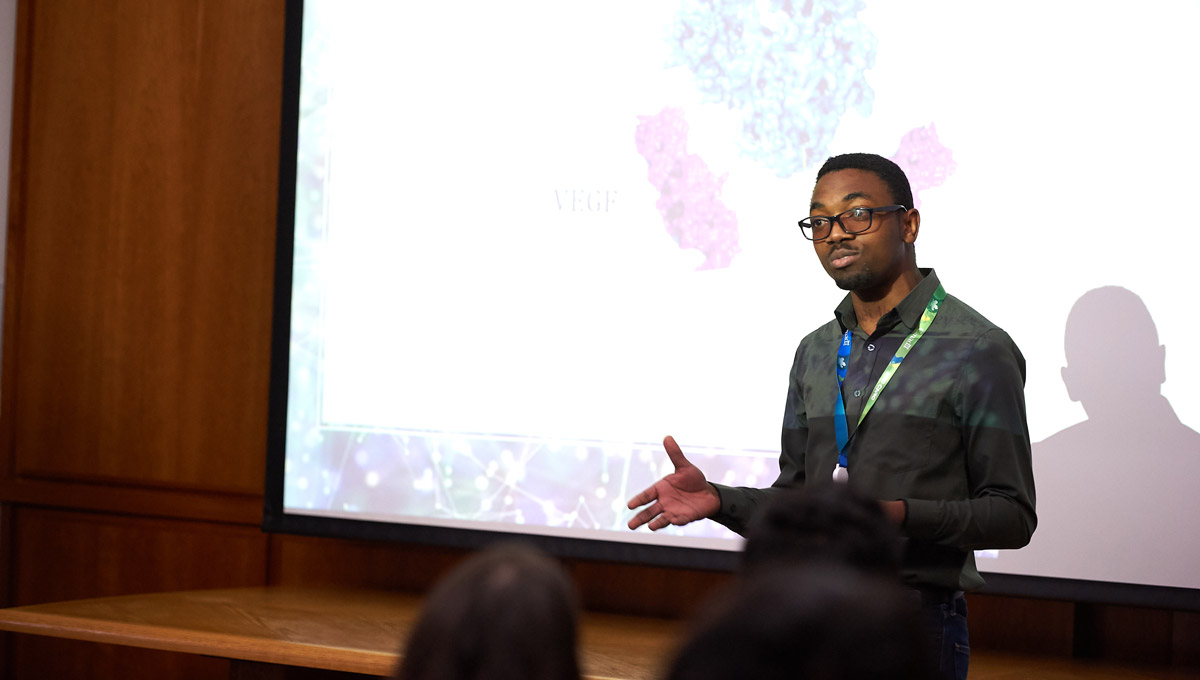
Looking at Scientific Problems Through a Business Lens
Dobbs’ team selected the company name of NERVARIA, which was looking for funds to tackle high-risk neuroblastoma. Her team had the winning pitch.
“The company pitch portion has forced us as students to think about all aspects that go into presenting a successful pitch for a fledgling biotech start-up,’’ says Dobbs. “As students in the life sciences, we aren’t always accustomed to looking at scientific needs and problems through a business or marketing lens, but it is likely that many of us will need to develop these skills to be successful in our chosen career paths.”
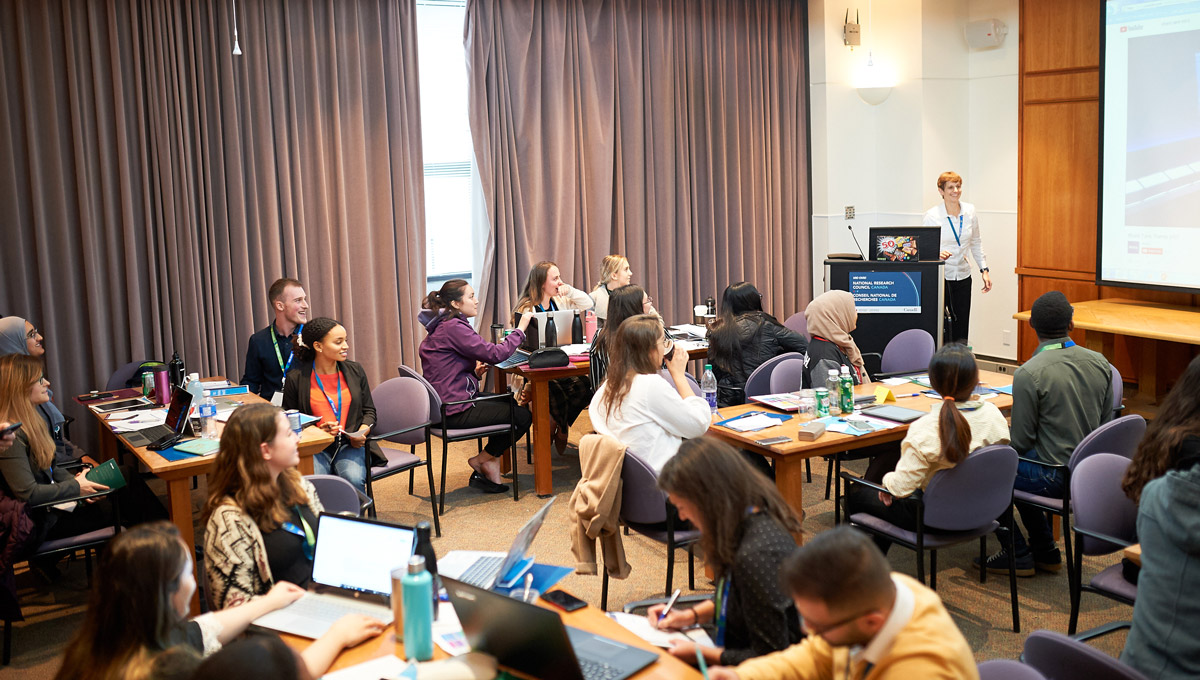
Adjunct Prof. Sue Twine speaks to students.
Sue Twine, an adjunct professor in Biology at Carleton who is the NRC’s Section Head of Advanced Analytics within the Human Health Therapeutics Research Centre, started the internship, along with co-founder Kelly Fulton, to give students off-campus experiences—the sort of experiences she wishes she could have had as an undergraduate student.
“We have worked with Carleton for many years, and we’ve always been impressed by how open the faculty is to providing students with many different opportunities to experience the real world of biotech,” says Twine.
“This year, another 25 students attended the internship during reading week and threw themselves enthusiastically into the challenge. This clearly showed up in the excitement and quality of the team pitches.’’
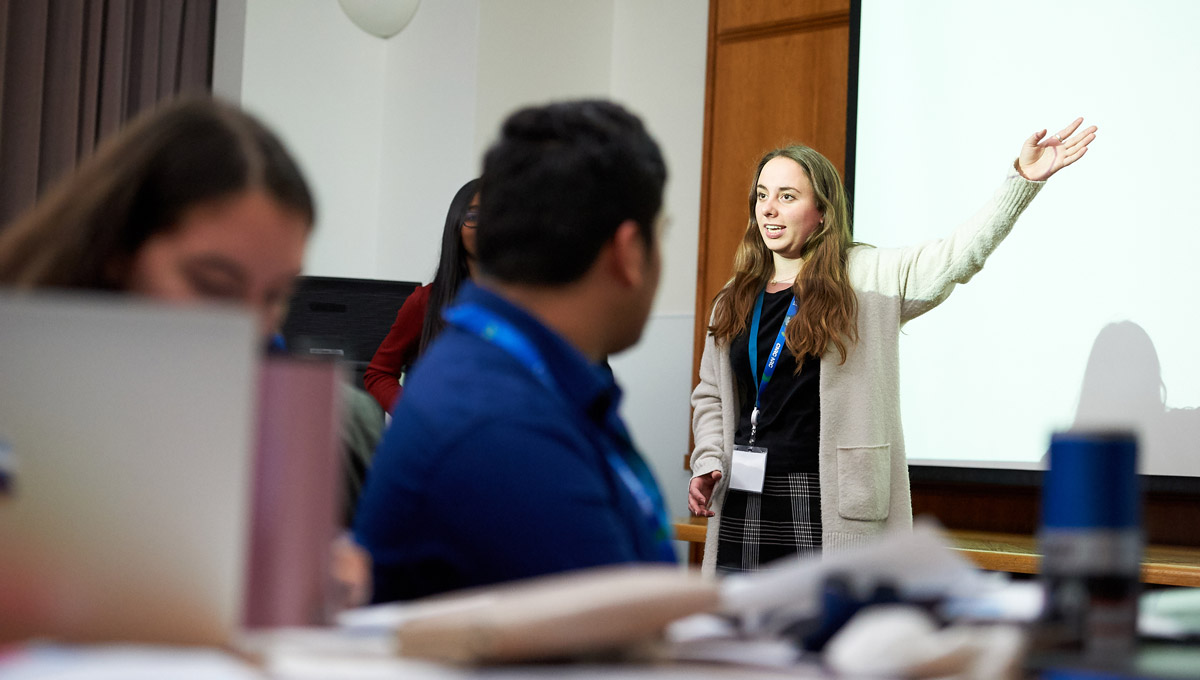
Thursday, November 14, 2019 in Faculty of Science, Student Experience
Share: Twitter, Facebook
